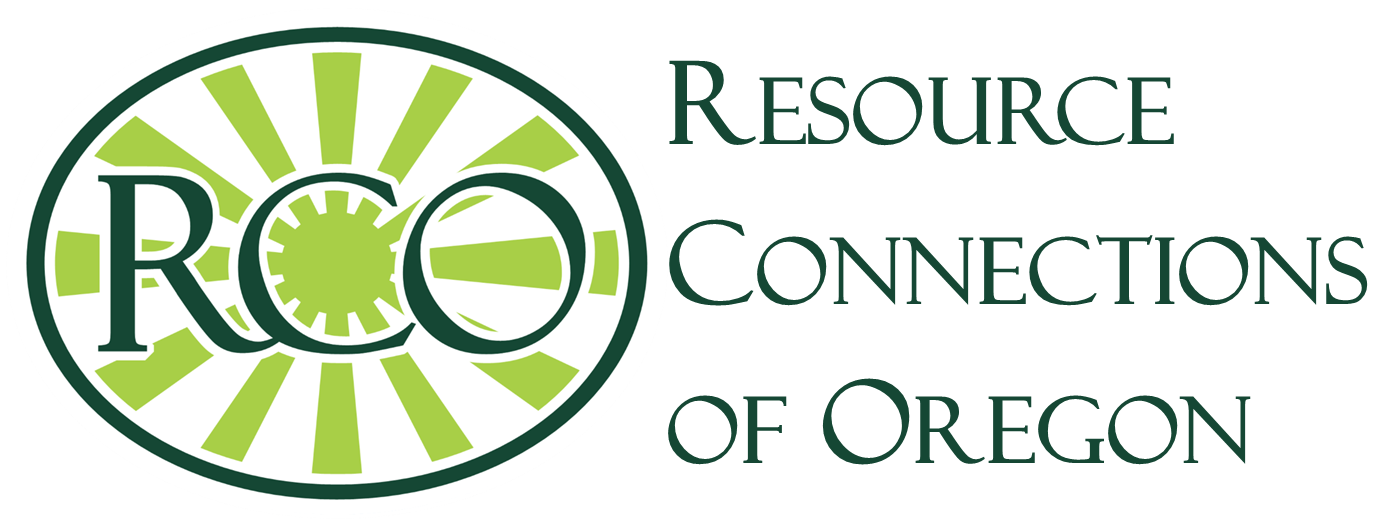About RCO
Resource Connections of Oregon (RCO) is a non-profit known for its beneficial role in Oregon's service delivery system as well as for the talents and skills of its staff. We currently provide services to around 1200 customers in Benton, Lane, Linn, Marion, Polk and Yamhill Counties.
The start of RCO can be found in the movement toward self-determination for persons with intellectual and developmental disabilities. While developing new service systems to implement this concept, it became clear that the creation of new types of organizations would be necessary. Thomas Nerney and Donald Shumway, of the National Program Office on Self-Determination, stress the importance of having organizations to assist with employer and payroll functions (fiscal intermediaries) on behalf of people with disabilities and their families.
The development of RCO is a direct result of this need for fiscal intermediaries to help further the concept of self-determination and the development of self-directed supports on behalf of people with disabilities and their families.
RCO was established in May 1998 as an offshoot of Oregon Technical Assistance Corporation (currently Oregon Training and Consultation, or “OTAC”). This new program was needed to meet the needs of individuals and their families who were newly choosing to self-direct their supports. RCO provided these fiscal intermediary supports for those pursuing a self-directed life.
During this time, around 5,000 Oregonians with intellectual and developmental disabilities were on “waitlists” for funded services. As a result, in 2000, a lawsuit was filed on behalf of a small group of individuals with intellectual and developmental disabilities who were eligible for services but were on the waitlist. This lawsuit stated that anyone eligible for Medicaid funded services should not have to wait for them. Oregon chose to settle out of court in what is known as the Staley Settlement.
The settlement required “universal access” - that Support Services be available to all eligible Oregonians. The state created a new Brokerage Service system to meet this new need. This new system would be founded in self-determination; putting the person receiving services in the “driver’s seat.” Within the design of the system, customers get to say what they need and want; how much they want; when they want it and who they want to provide the support. We embrace the ideas that:
We are all "people first"...our differences just make each of us uniquely who we are.
There should be "nothing about me, without me"...no one knows our wants and needs better than ourselves.
It was in 2001 that RCO was awarded a state contract to become one of the first Support Service Brokerages. This meant adding a case management function to the existing fiscal intermediary service. RCO spun off from OTAC and, on January 1, 2002, enrolled its first 99 customers. Over the next 10 years, RCO grew to serve around 700 customers.
In September 2014, the State of Oregon pulled the fiscal intermediary services “in-house”. While no longer a fiscal intermediary, RCO staff continue to actively assist customers and their families with employment supports. Now, RCO focuses exclusively on case management services for adults with intellectual and developmental disabilities who live in their own homes or with family or friends.
In September of 2021, RCO added a second Brokerage contract and expanded services and nearly doubled in size to around 1200 customers. Now we serve customers in Benton, Lane and Linn Counties from RCO South Valley, and Marion, Polk and Yamhill Counties from RCO Mid-Valley.


